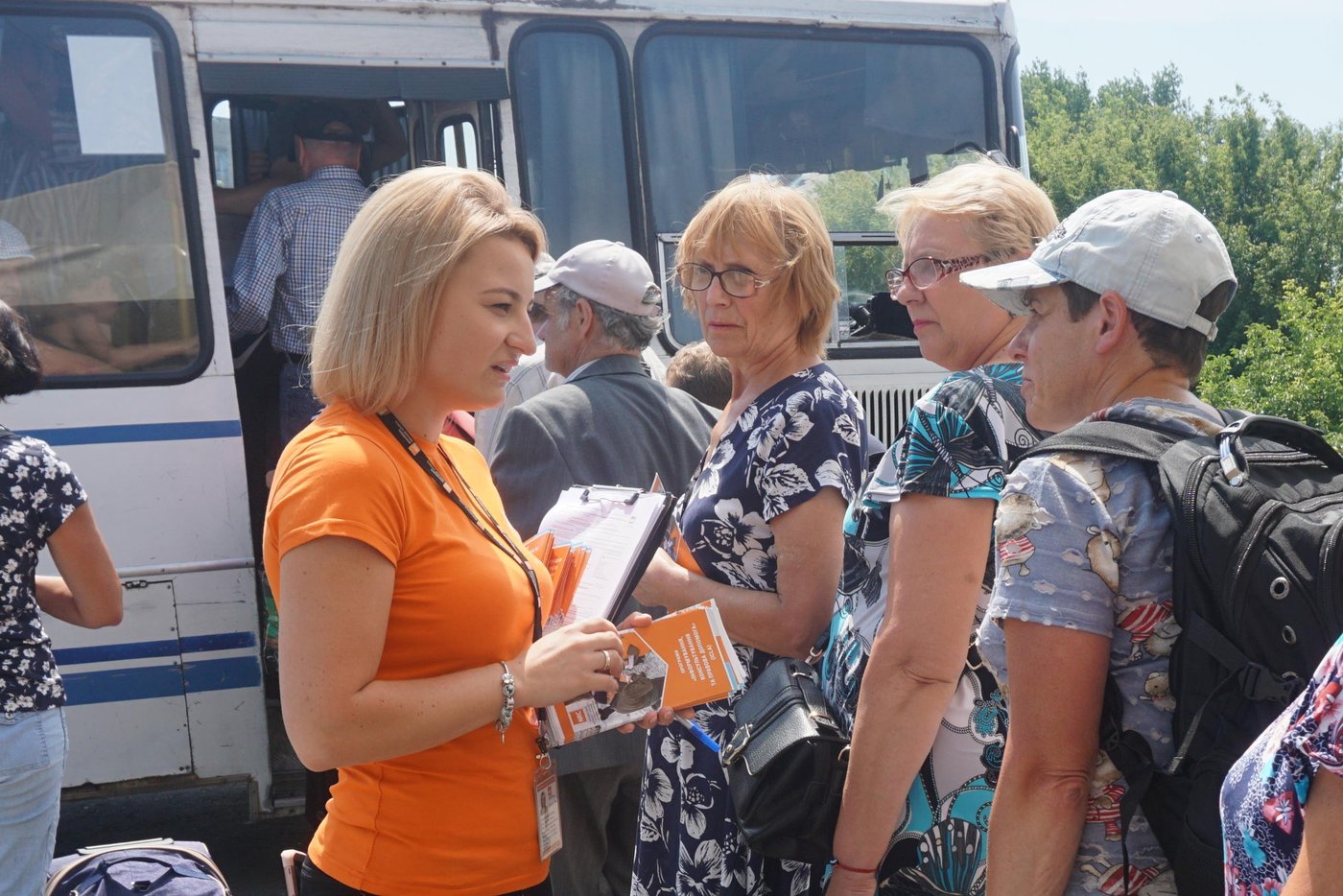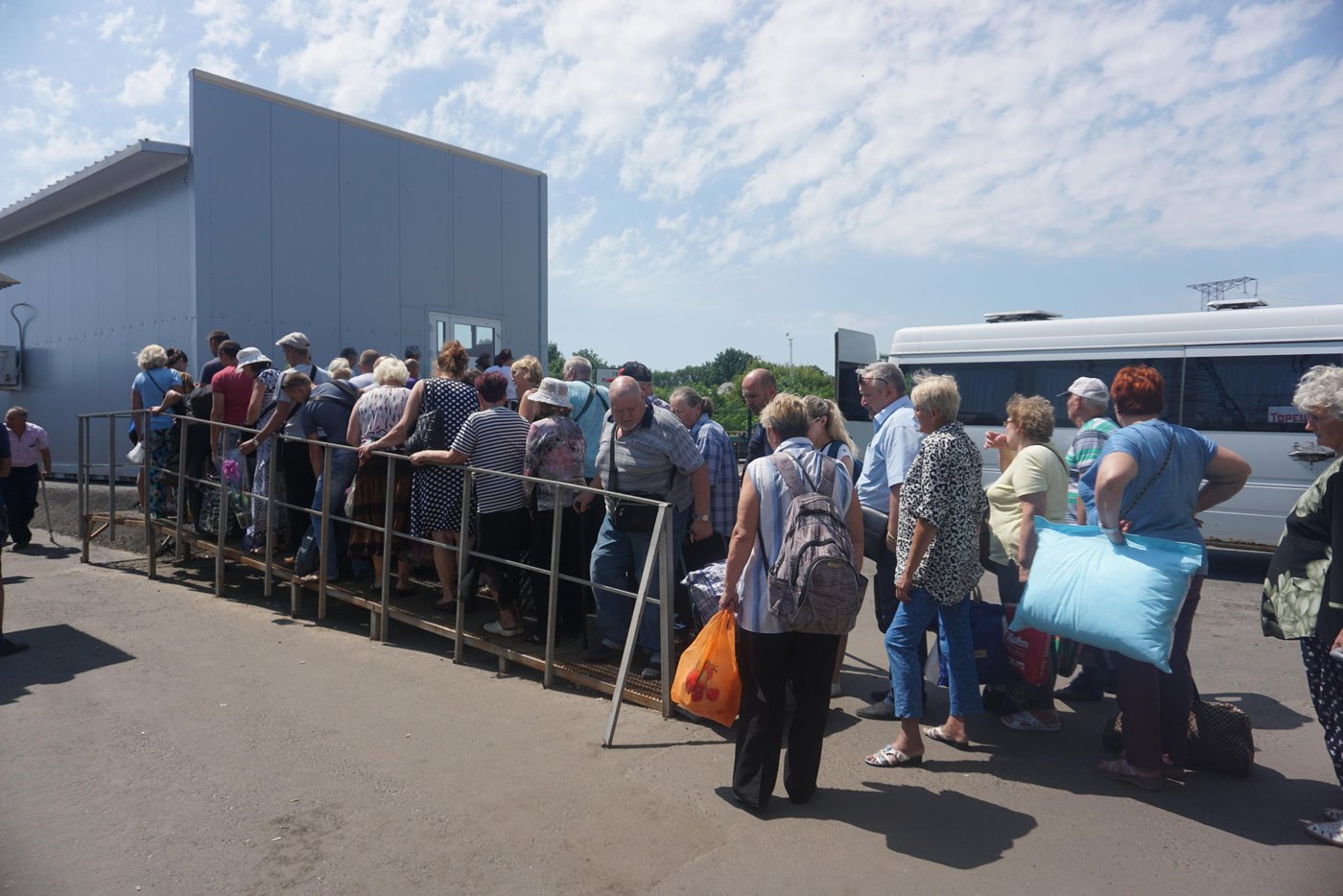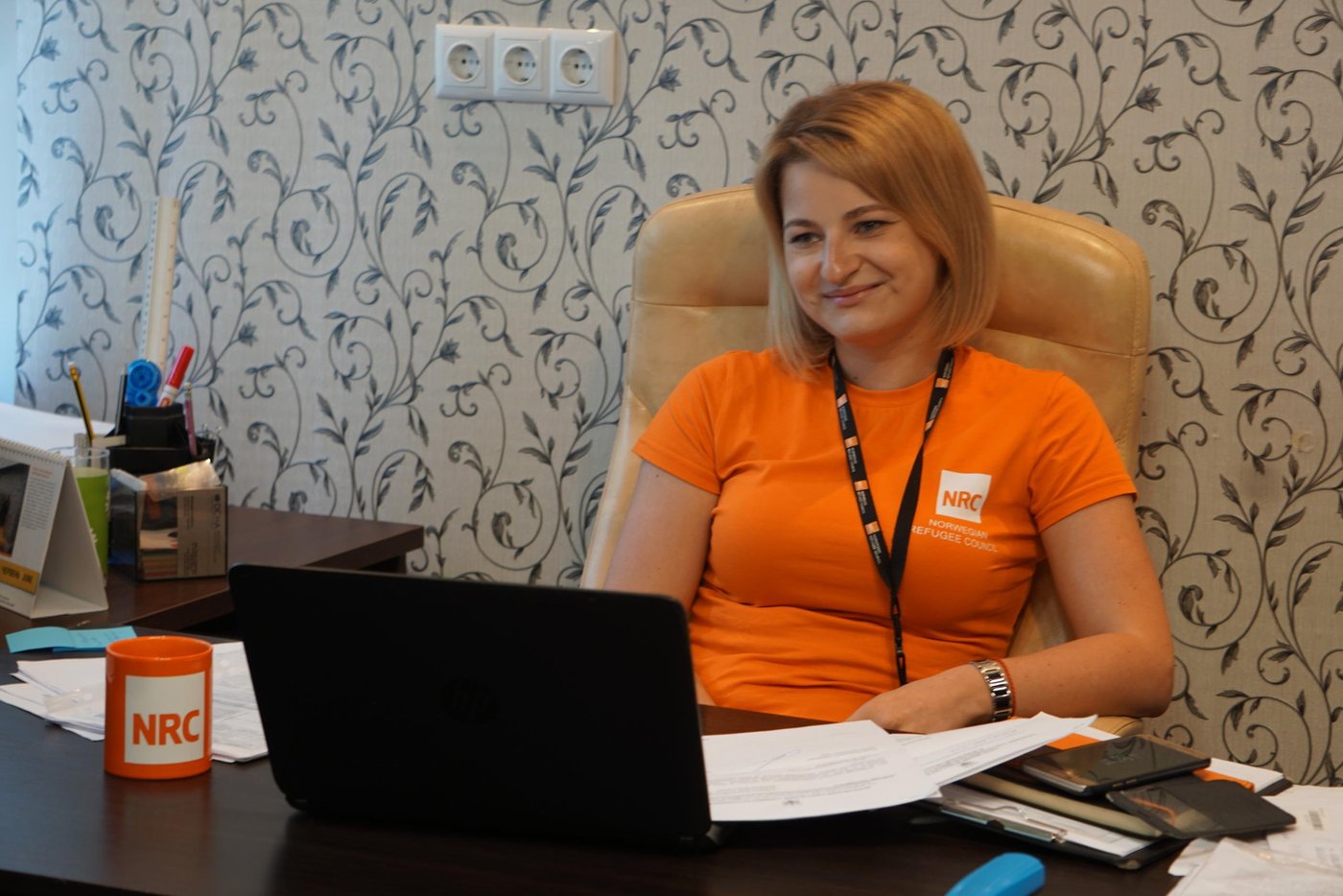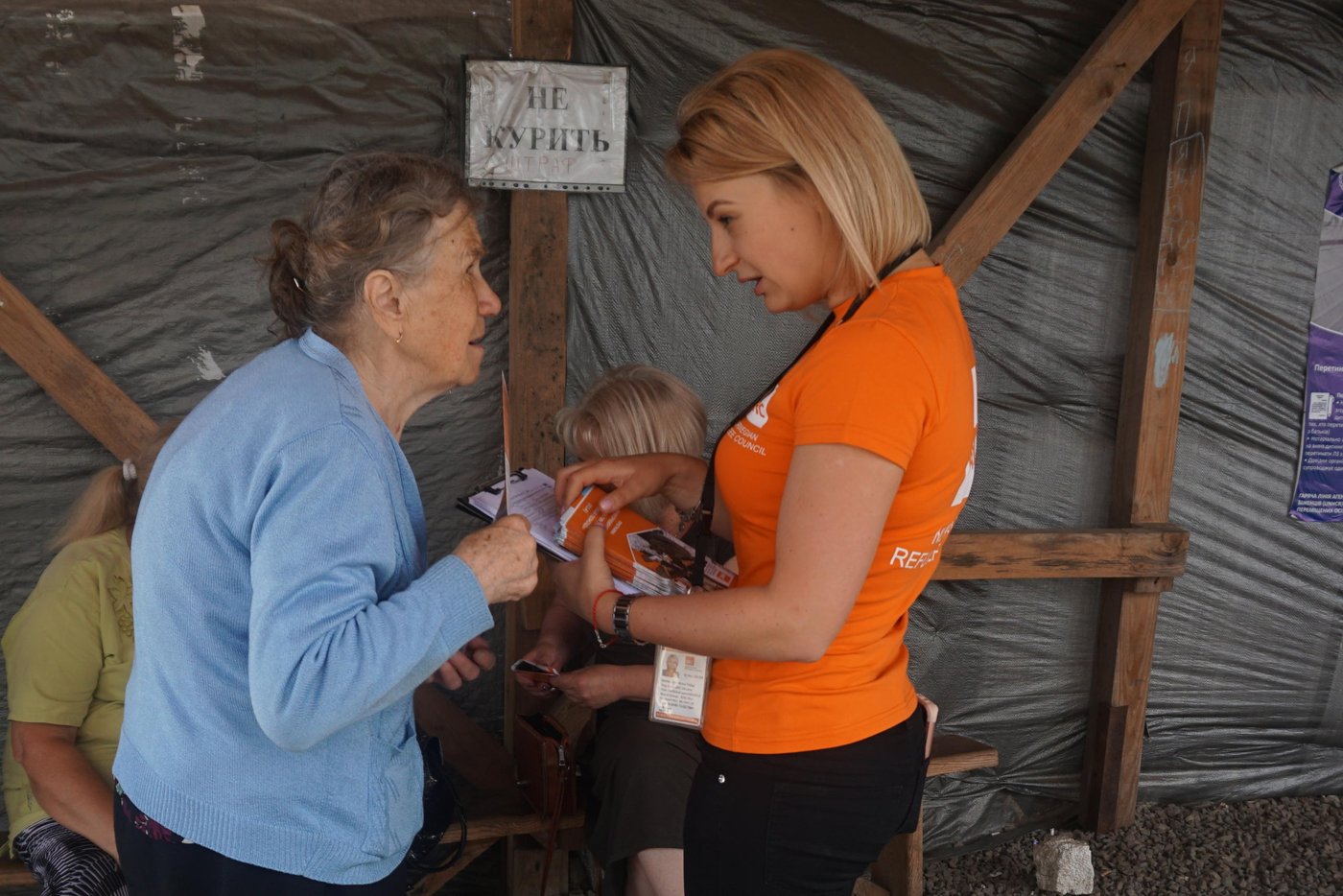Fulfilling a childhood dream
We met with Yuliia Voronkova, 30, a lawyer working in NRC’s office in the city of Kramatorsk, eastern Ukraine. The office is close to the Maiorske checkpoint – one of five checkpoints connecting government-controlled and non-government-controlled areas of the country. Here, NRC lawyers provide legal advice to the thousands of people who cross the so-called “contact line” every day.
I was on the side of the state, but I wanted to be on the side of people.Yuliia Voronkova
Yuliia has been with NRC for more than three years.
“From early childhood I dreamed of being a lawyer and helping people this way,” she explains. “I was born into a family of lawyers. My dad was an attorney and assisted people. He inspired me.”
“Before the conflict, I worked for the Pension Fund of Ukraine. Then I realised that this was not exactly what I wanted. I was on the side of the state, but I wanted to be on the side of people.”
“I missed my daughter’s first words”
Yuliia is originally from Donetsk. In August 2014, just three months after the birth of her daughter Anna, she returned to work. Her husband Denys no longer had an income and could not find a new job in the war-torn city.
“It was a difficult decision for me to go back to work, and for Denys to take care of the child. Because of my work, I did not have as much time for Anna as I would have liked. I missed a lot in my daughter's life. I did not hear her first words, because she told them to her dad,” admits Yuliia.
A year later, in August 2015, the conflict forced Yuliia and her entire family to flee Donetsk. After they left, their property was looted.
“We were a large, friendly family,” she recalls. “Every weekend all the relatives gathered for dinner. Now we rarely meet because the conflict has scattered us to different places.”
Read more about the conflict in eastern Ukraine
Now Yuliia, her husband Denys and their five-year-old daughter Anna are living in the government-controlled city of Kramatorsk.

Life lessons and human rights
From the beginning of the conflict, Yuliia was forced to deal with many of the pressing issues that affect the local population.
“I realised that I did not know what to do or where to go,” she recalls. “I had a newborn baby in my arms and no means of living. The maternity grant was the only income we had. And I had no idea how to get this allowance in non-government-controlled Donetsk. But life taught me.”
After leaving Donetsk, Yuliia managed to get a job as a humanitarian lawyer in a local organisation. Now she works as part of the NRC human rights project, specialising in unusual and complex cases.
“I work on cases requiring an integrated approach,” she explains. “Obviously, for a person who needs a passport but has never had one before, one consultation is not enough.”
“Once I had a case when a man, who asked for help, did not have any documents and could not even confirm his identity. I had to go to the detention facility where he had previously been in order to find information about him. As a result, the man received his first passport, but it took about two years.”
Information is the key
Yuliia provides legal assistance, helping people to obtain identity (and other civil status) documents and access social benefits and pensions. She takes care to inform those affected by the conflict about the rights guaranteed to them.

“We work at checkpoints, helping residents of non-government-controlled areas to understand changes in legislation and, for example, how the process for receiving certain payments or documents has changed. We keep a record of the issues that are important to people crossing the so-called ‘contact line’, and focus our work on them,” Yuliia explains.
Read more about how we protect human rights in eastern Ukraine
A friend to those in need
In her work, Yuliia often visits frontline communities, where hostilities might flare up at any time.
“When I arrive in such communities, I try to conduct a dialogue with people not only as a lawyer, but also as a friend,” she explains. “Many of the residents have already lost hope and given up. I take close to my heart each personal story and never stop halfway. Even when it becomes clear that a problem currently has no solution, there is always a way.”
In 2018, Yuliia provided more than 400 consultations and nearly 300 legal services. But there are challenges and frustrations.
“Despite all our efforts, a large number of issues remain unresolved,” she tells us, “especially regarding pensions for people who have been displaced or live in non-government-controlled areas. It is so difficult to tell people that we have done everything we can to solve their problem, but have not achieved anything. And this is not because I am a good or bad lawyer, but because the established state system does not work properly.”
Wife, mother, breadwinner, humanitarian
Upon returning to the office, Yuliia shares her views on her life.
“During the five years of conflict, I have grown a lot,” she explains. “I have come to understand that I am both a wife and a mother, but at the same time, I have to be a breadwinner. It has been a very important experience that will undoubtedly help me in the future.”

Yuliia dreams of a peaceful life and the possibility of returning to her home city, while continuing her humanitarian activities.
“I often ask myself who I want to be in the future. I understand that my vocation is to help people. I am not ready to turn my back on them. I am sure that when the conflict is over, the necessity for lawyers in the humanitarian area will still exist. And I would like to keep working in this direction,” she concludes.
***
In the first half of 2019, NRC lawyers assisted 10,520 people through its different projects in Ukraine.


